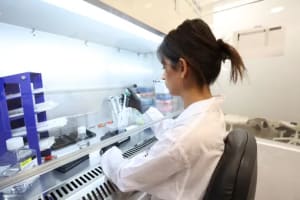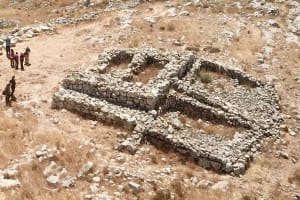Yad Vashem announces: Names of five million holocaust victims identified

The Yad Vashem Holocaust Memorial announced this Monday that it has identified the names of five million Holocaust victims. According to the museum’s statement, this milestone marks the culmination of 70 years of dedicated work.
Experts explain that although the generally accepted number of victims is six million, an additional 250,000 names may still be identified in the future through artificial intelligence and new technological tools. However, it is believed that hundreds of thousands of names will never be documented, as no trace of them remains.
The five million identified names are now recorded in Yad Vashem’s Central Database of Shoah Victims’ Names, which is publicly accessible online. The database is the result of decades of collection work carried out by Yad Vashem since its establishment—through Pages of Testimony, the discovery of names in various documents, and cooperation with archives and memorial sites.
The database also contains hundreds of thousands of “personal files” compiled from archival sources, presenting details about the victims’ lives and fates. Over the years, it has helped thousands of families worldwide commemorate loved ones, discover relatives who were murdered in the Holocaust, or find out that someone once thought to have perished had in fact survived.
One of the main sources of information is the collection of Pages of Testimony, through which about 2.8 million names have been gathered to date. These pages continue to be submitted, and in 2013 UNESCO recognized the collection as part of its Memory of the World Register. Other significant sources include historical documentation such as personal letters, diaries, Nazi records, deportation lists, population censuses, and materials from legal proceedings against Nazi war criminals and collaborators. Yad Vashem has also conducted unconventional initiatives, such as identifying names from tombstones in cemeteries and memorial plaques in synagogues.
The uniqueness of the name database has evolved over the years through the development of advanced search capabilities and indexing systems for multiple variations of names and places. Special algorithms were also developed to cross-reference data and consolidate information about individuals quickly and accurately, improving the precision of the database.
“In many cases, a Page of Testimony bearing a victim’s name is all that remains of a person,” said Dr. Alexander Avraham, Director of Yad Vashem’s Hall of Names, who led the project for more than 37 years and is now retiring.
“Most Holocaust victims were murdered, leaving no trace and no grave. The Pages of Testimony serve as symbolic tombstones. The Nazi Germans sought not only to kill them but also to erase their very memory—and the database prevents that. By identifying one Jewish person after another, we restore their identities and ensure that their memory endures forever,” he added.
Yad Vashem Chairman Dani Dayan stated that identifying five million names is “both an achievement and a reminder of an unfinished obligation.” According to him, “Behind every name lies an entire life: a child who never grew up, a parent who never came home, a voice silenced forever. Our moral duty is to ensure that every victim is remembered and that no one remains anonymous.”

Kan.org.il is the Hebrew news website of the The Israeli Public Broadcasting Corporation
You might also like to read this:















